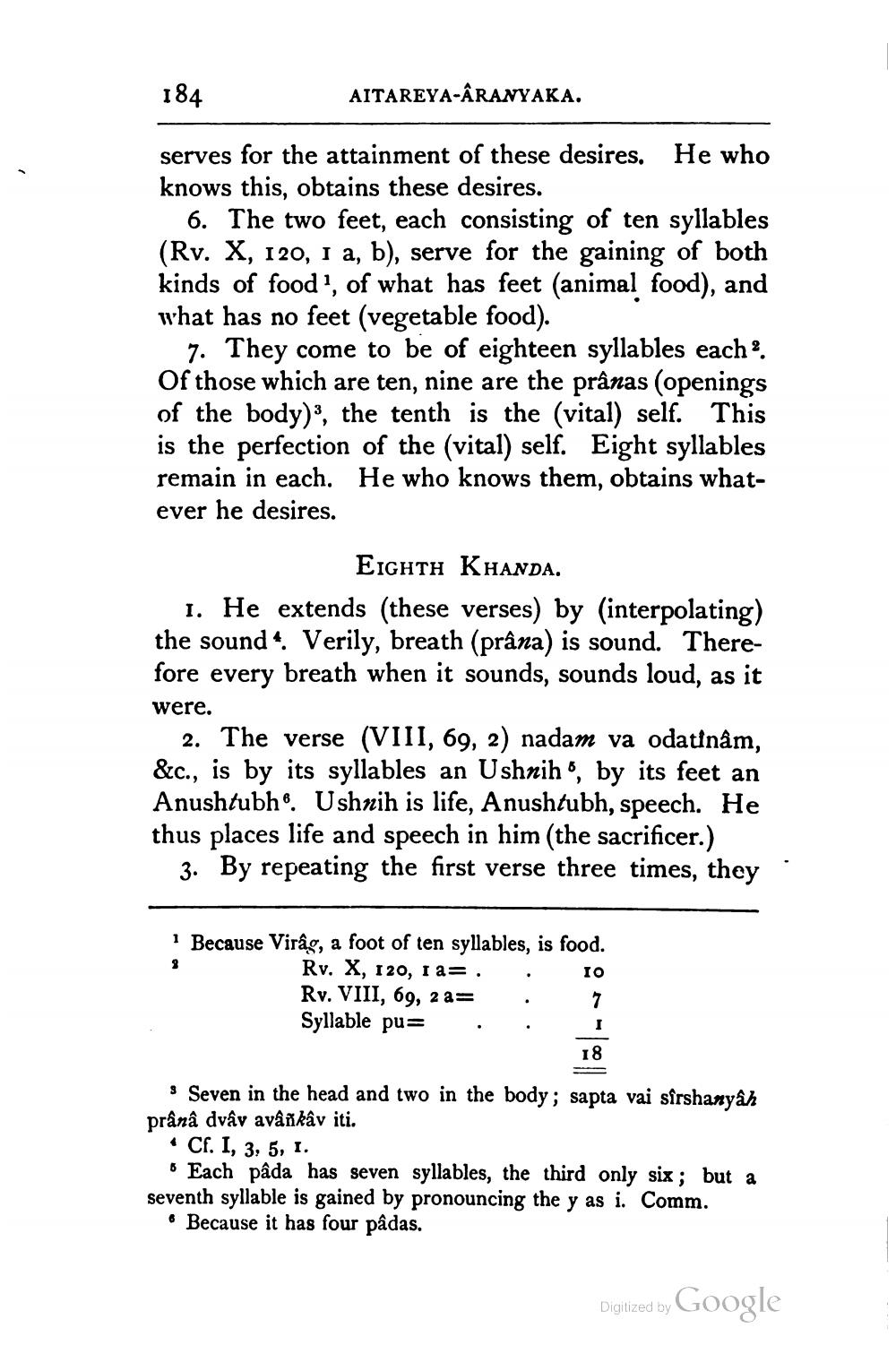________________
184
AITAREYA-ARANYAKA.
serves for the attainment of these desires. He who knows this, obtains these desires.
6. The two feet, each consisting of ten syllables (Rv. X, 120, 1 a, b), serve for the gaining of both kinds of food", of what has feet (animal food), and what has no feet (vegetable food).
7. They come to be of eighteen syllables each? Of those which are ten, nine are the prânas (openings of the body), the tenth is the (vital) self. This is the perfection of the (vital) self. Eight syllables remain in each. He who knows them, obtains whatever he desires.
Eighth KHANDA. 1. He extends (these verses) by (interpolating) the sound 4. Verily, breath (prâna) is sound. Therefore every breath when it sounds, sounds loud, as it were.
2. The verse (VIII, 69, 2) nadam va odatinâm, &c., is by its syllables an Ushniho, by its feet an Anushtubho. Ushnih is life, Anushtubh, speech. He thus places life and speech in him (the sacrificer.)
3. By repeating the first verse three times, they
Because Virág, a foot of ten syllables, is food.
Rv. X, 120, ia=. . Rv. VIII, 69, 2a= . 7 Syllable pur
18
3 Seven in the head and two in the body; sapta vai sîrshanyah prânâ dvâv avâñkâv iti.
• Cf. I, 3, 5, 1.
6 Each pâda has seven syllables, the third only six; but a seventh syllable is gained by pronouncing the y as i. Comm.
. Because it has four pâdas.
Digitized by Google




